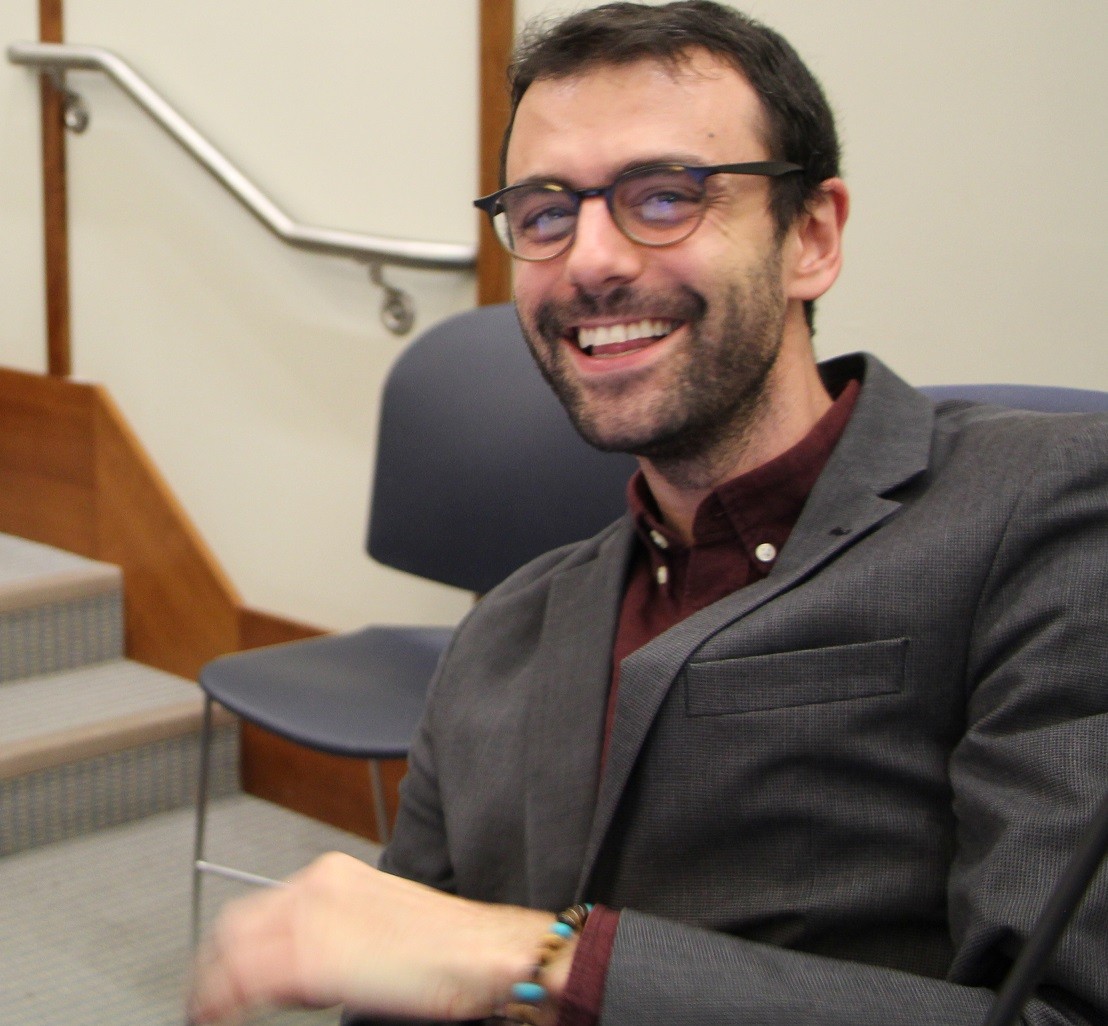How do arrests, jail time, and conviction for drug crimes influence retention in a behavioral HIV prevention intervention for PWID and their intimate partners?

F-31 Award Granted to Explore Drug Arrests and Retention in an HIV Prevention Intervention for PWID and their intimate partners
Former T32 Fellow Phil Marotta was just awarded an F-31 by the National Institute of Health to pursue this question. Mr. Marotta will use mixed methods to examine whether history of arrest, incarceration and conviction for drug crimes effect retention in a behavioral HIV prevention intervention among people who inject drugs and their sex partners in Kazakhstan.
What is the T32 training program?
The T32 training program, funded by NIDA, trains the next generation of pre- and post-doctoral scholars in the prevention, treatment, and care of HIV and drug abuse among individuals in the criminal justice system with a strong emphasis on individuals involved in alternatives to incarceration and community supervision who are affected by health disparities.
The primary investigators on the T32 are Drs. Nabila El-Bassel and Lisa Metsch, and the training director is Dr. Elwin Wu. T32 Fellows like Mr. Marotta receive mentoring from 32 faculty from the Columbia School of Social Work and the Mailman School of Public Health. In fact, the T32 institutional training mechanism is designed to equip pre-doctoral trainees with the resources and skills necessary to apply for funding to conduct independent research.
“For the past three years, I have received outstanding training from the T32 Training Program,” says Mr. Marotta. “The mentorship I received from the core leadership of the Social Intervention Group and the Global Health Research Center of Central Asia specifically, Drs. Nabila El-Bassel (Primary mentor/sponsor), Elwin Wu (Sponsor), Louisa Gilbert (Collaborator) and scientists working on the ground in Kazakhstan, was critical to competing for this award."
National Institute of Health F-31: Empowering Pre-Doctoral Students
The Ruth L. Kirschstein National Research Service Award (NRSA) program provides a flexible individual funding mechanism for pre-doctoral students to receive training and support necessary to develop into independent research scientists through mentored training while conducting dissertation research.
Globally, criminal justice and HIV are two serious overlapping public health problems affecting people who inject drugs, yet the impact of criminal justice involvement on retention in HIV prevention interventions is poorly understood.
"As part of this grant," Mr. Marotta says, "I will receive additional support from an outstanding team of talented collaborators with expertise in qualitative and quantitative methods from other institutions including Yale University School of Medicine Center for AIDS Research, Boston University School of Public Health, American University, and the University of Florida Department of Biostatistics. As part of this grant I will be taking additional coursework in Randomized Clinical Trials, Intervention science, Qualitative Research Methods and Probability to carry out analysis of data for the dissertation."
In this mixed-methods study, in addition to analysis of secondary analysis of data, Mr. Marotta will collect data on a small qualitative sample of participants in the intervention to understand how criminal justice involvement shapes retention for people who inject drugs and their intimate partners.
Findings from this study will inform future research into methods of improving retention in HIV prevention interventions for people who inject drugs and their female intimate sex partners. Mr. Marotta concludes: "I will use findings from this study to inform future grant applications at the next stage in my career."
Congratulations Mr. Marotta from the SIG team!
Next steps
- Learn more about the T32 Training Program.
- Follow SIG’s work by signing up for our monthly newsletter or following us on Twitter.
